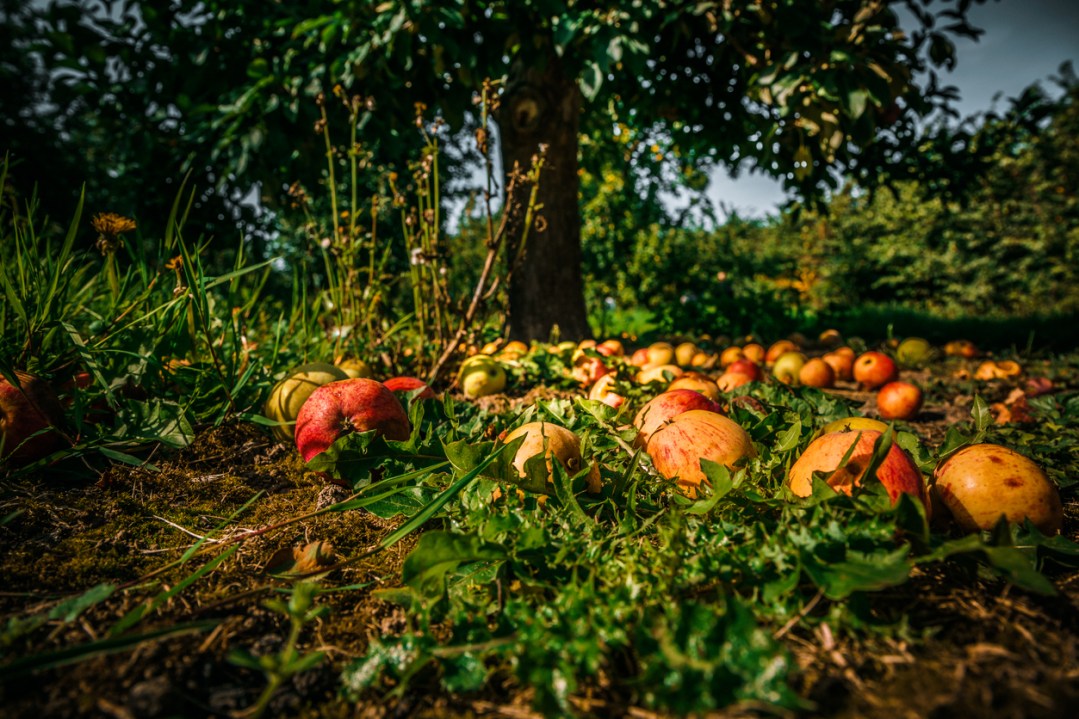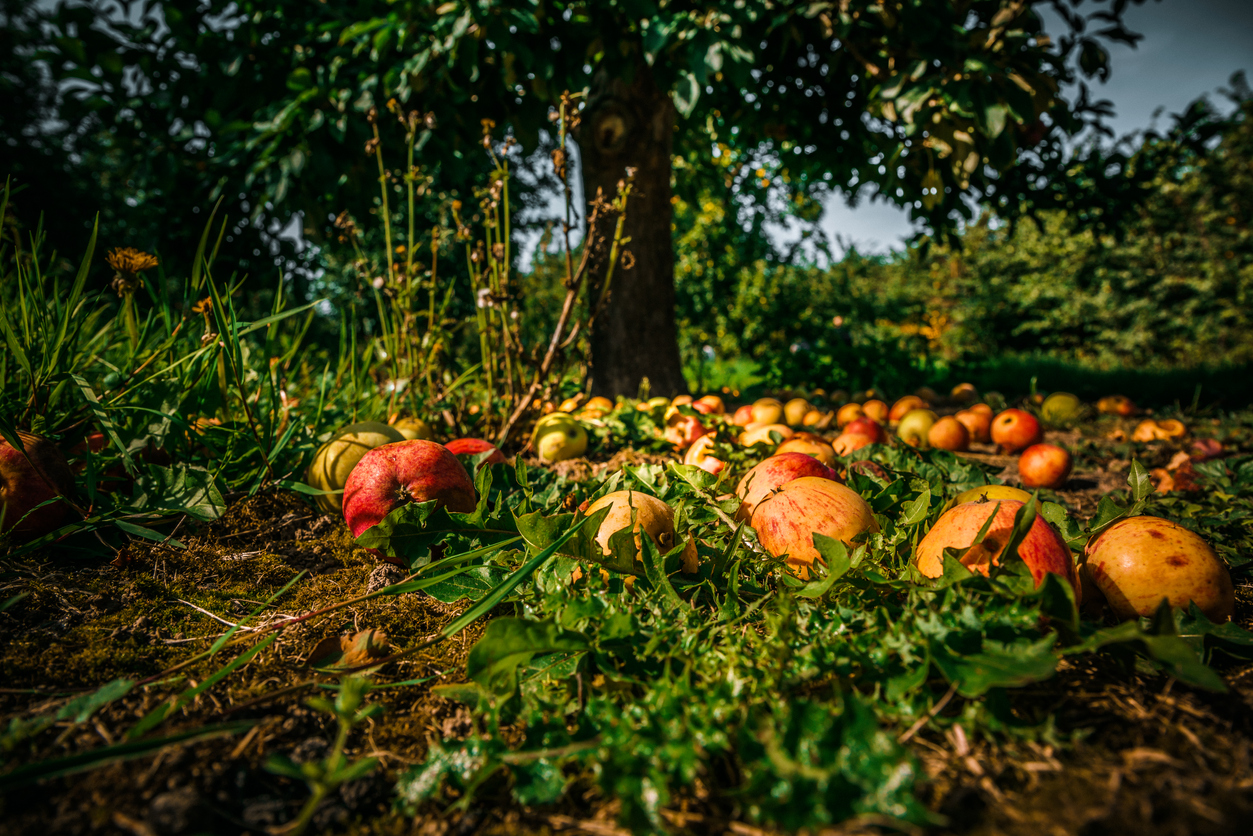In autumn when apples cascade off the trees and bedeck the orchard’s floor with fields of red and gold, thoughts naturally turn to an ancient survival instinct: foraging – or, as we tend to call it in my part of the world, scrumping. Yet although scrumping seems as English as Shakespeare, conker fights and Bonfire nights, it is quite a recent word borrowed from the Middle Dutch schrimpen, meaning shrivelled (or perhaps a derivation of the verb ‘to scrimp’).
Crab apples are a bit small and dry, high in tannins but very good sliced and fried up with smoked bacon
When sugar was scarce in medieval times, fruit was an obsession and the autumn harvest closely guarded. Not just apples either. There is the Chaucerian medlar in the Reeve’s Tale:
A fruit which is rotten before it is ripe
Unless I fare like medlar, all perverse
For that fruit’s never ripe until it’s worse.
Medlars, though seemingly like apples but really roses, are often a coded reference for fallen women. Once the medlars have bletted – a stage beyond normal ripening – and the juice filtered and set firm, it becomes a fine ruby red jelly, a grand accompaniment for roast lamb or venison.
Shakespeare mentions not only medlars but crab apples ‘When roasted crabs hiss in the bowl’, a reference to Wassail in Love’s Labour Lost. And ’crab trees’ make an appearance in Coriolanus, Henry VI and Henry VIII. Then there is Lear’s fool ‘She’s as like this as a crab’s like an apple’ and in Romeo and Juliet Mercutio comes to the point. ‘Thy wit is a very bitter-sweeting; it is a most sharp sauce.’ A bittersweet is a cider apple no less. No point in scrumping apples that don’t taste good.
Crab apples are a bit small and dry, high in tannins but very good sliced and fried up with smoked bacon. Even Puck was taken with crabs in A Midsummer Night’s Dream. ‘And sometime I lurk in a gossip’s bowl in the very likeness of a roasted crab, and when she drinks against her lips I bob.’ There is something tantalising, even romantic, about scrumping apples, either in broad daylight or under a full moon. Applejohns are apples that dry out and though shrivelled keep well to St John’s Day.
Technically, to scrump is to steal or magic away apples from someone’s orchard. Overhanging branches are useful; boundary fruit. Hedgerow harvest. Foraging, but no legal defence if caught red-handed. In 1846 two Dorset boys were fined 2/- for stealing apples. 3d for the apples plus 3/6d costs, in total 5/9d or three days work. No doubt destined for ‘shoulderin’ cider made from apples in sacks carried off on your shoulder.
The term scrumpy is often applied to rough farm cider made with apples that may or may not have been nicked, the evidence squashed and then fermented with wild yeasts in old oak barrels. Pressing matters. It can be brilliant or awful, depending on the hygiene of the cidermaker.
In his poem ‘To Autumn’ John Keats was delighted by the sight of such rural scenes near Winchester. It’s all in the timing.
Or by a cider-press, with patient look,
Thou watchest the last oozings, hours by hours.
Then there are other fruits worthy of your attention. Pears, some of which, if they are small and hard as grape shot, may well be perry pears. These can be delightful when stewed. Quince vodka is not bad at all. Bramleys can be cored, then carefully inserted with a dried apricot at the bottom as a stopper. Fill the apple with sultanas pre-soaked in brandy, then on top place a lump of honey and roast to perfection.







Comments